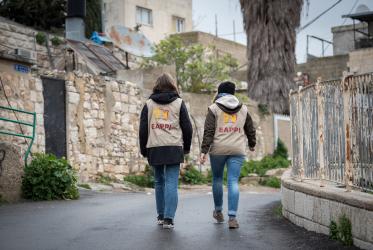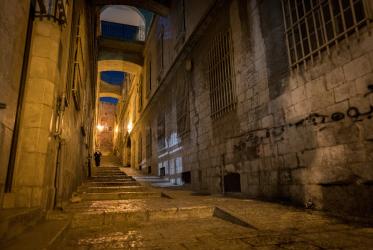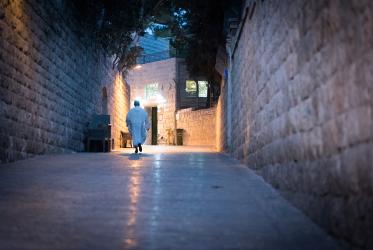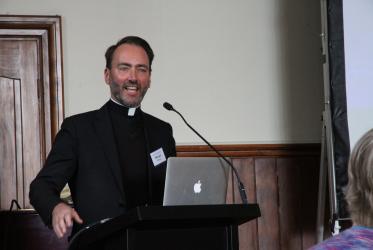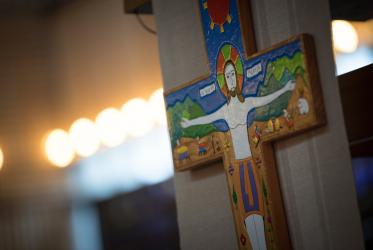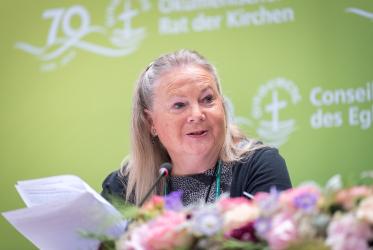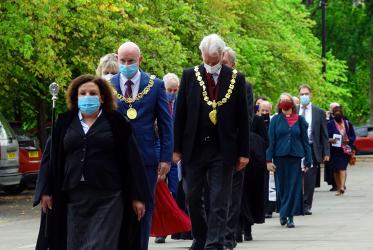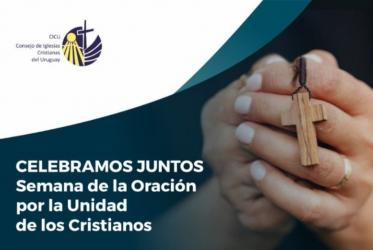Displaying 1 - 20 of 43
“The occupation can’t last forever”
25 October 2023
“They want to live without fear and constant harassment”
25 October 2023
Kids Feel Safe Going to School when EAs are Present
23 October 2023
Exhibition “Bethlehem Reborn – Palestine – The Wonders of the Nativity”
08 September 2023
As Bethlehem prepares for Christmas, ‘it’s all about community’
08 December 2022
Prayer life of Bishop Mary Ann Swenson has deep roots
31 January 2022
In Lebanon, “without peace there is no justice”
21 July 2021



